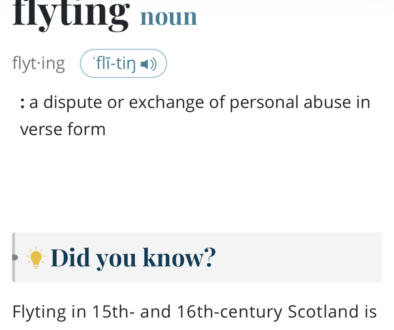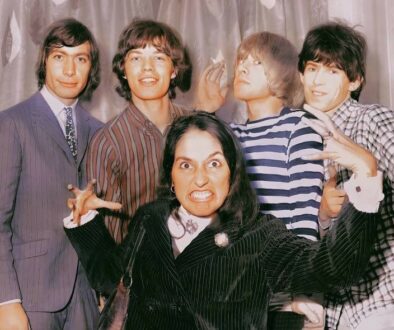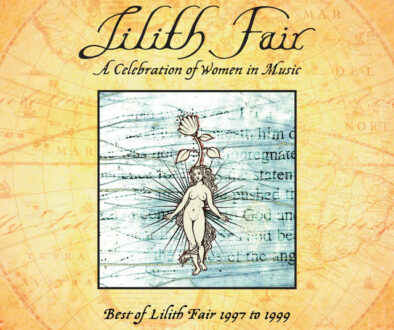Understand and Appreciate

My father, Edward Sandifer, passed away on Wednesday after a long illness. He was a neuroatypical wonder of midwestern farmfolk the start conditions of which simply do not exist in the world anymore. He is also, in many ways, why I am the sort of person I am, and why this site is what it is.
This is the eulogy I read this morning at his burial.
You used to, whenever the family would come over, find a way to sneak off with some tea and read. It wasn’t that you were rude to people. Quite the opposite; you were always charming, interested in what people had to say, enthusiastic, and warm. You loved your friends and your family. It’s just that after enough time being extroverted, you’d get overwhelmed and find it necessary to retreat. I was always much the same way, which suited us both, not least because we often didn’t seem to count towards the other’s sense of being overwhelmed by company. So even when we were visiting someone else, we could find a corner of a room, sit, and talk about whatever interested us that day. I loved talking to you, loved engaging with the way your mind worked: the long, fascinating arcs of your reasoning and knowledge, and the swerving paths of connections you could draw from one thing to another. And so my audience will, I hope, forgive me if I do it one last time. I’m supposed to talk to all of them here, but I can’t. I’m overwhelmed. I need to sit down with some tea and talk to you.
My favorite time we ever talked was when we were on a Metro North train back from New York City, and I asked you a question that, perhaps eighteen years into my life, I realized I still did not have an answer to. I was attempting a reconciliation with Christianity that proved theoretically possible but practically unsatisfying, and I finally got around to asking you about religion. Mom and Grandma always made me go to church, but you never had to go and never spoke of it, agreeing the proscription existed but having no visible investment in the principle behind it. Twenty years of hindsight and I can see the parental faultline negotiated clear as day, the conversations that must have taken place away from your child’s ears. At the time, it was just a mystery. You looked thoughtful, as if I’d asked a good question, which was always a good feeling. Our discourse was Socratic—you answered with a question, and I replied, until my query had narrowed to something about the divine. I wanted to know your take on the noumenal. What did your spiritual life consist of? Or, as I finally ended up framing it, how did you worship? Mom worshiped, and I was expected to worship, through church, prayer, Christianity, but what did you do? And you thought for a minute, and said “the only way I know how to worship is to understand and appreciate.”

The reason we were on a train was that we were coming back from seeing the play Copenhagen, which I’d read about perusing the New York Times, I think, and I’d seen it was highly rated and award-winning. Also, it was about a posthumous conversation among Niels Bohr, his wife Margrethe, and Werner Heisenberg about nuclear physics, the atom bomb, the history of science, and the nature of death and understanding and uncertainty. Which sounded like the sort of thing you’d enjoy, so I got you tickets for Christmas and we had a great evening in the city, ate Indian food, and saw the play. It was amazing. It was a night that still lives in my head, vivid and alive, a thing that influences how I think and write and what I want out of art. A thing that changed how I understand and appreciate.
You probably see where I’m going by now, but I doubt our audience does. To help them understand, let’s talk for a moment about the only time I can remember where I saw you lost in religious ecstasy. We were in the UK, visiting Hay-on-Wye; a Welsh town whose economy had been revitalized when a bookseller had, in an act of glorious crackpottery, declared himself to be the king of the newly independent Kingdom of Hay, urging his subjects to open bookstores. We’d split up to shop for books, agreed to meet for dinner at five, and you were late. Which, I want to make explicit, was really, really weird. For all that you and I shared a certain impish mischievousness, you were always the sort of person who functioned off of the vivid certainties of routines—the classic autistic reaction against unexpected changes of plans. Being late didn’t happen. Yet here you were. And all of us—Mom, me, Grandma, and Tori—wondered faintly what, exactly, was more probable—that you were late or that something had happened to you. And so we started checking bookstores, looking in the “old math books section,” until eventually we found you. The impossible had happened: you’d lost track of time, your attention comprehensively consumed by the giddy heights of that many books to search and paw through. Lost in your worship.

Because in the end, that’s what understanding and appreciating meant. It meant you could fly through a world of thought that we couldn’t reach, soaring through concepts and ideas that could never be condensed into anything so crass and basic as communication. We can call it something like “genius,” but naming it doesn’t matter. Who cares what word you use for the thing you’ll never experience. I mean, that’s what the noumenal is, right? That’s the difference between worship and ordinary being—its absolute singularity. I asked you about your sense of the divine, and that’s what you told me about.
This was at times tricky to navigate. Especially as, like, an eight year old. Most of the time, though, it was simply life, a fundamental part of a largely happy and always well cared for childhood. I was my father’s son, more or less. And you were an exceptional teacher, viewing it, I think, as part of what your private religion decreed. For the most part, talking to you as a child was the intellectual equivalent of the piggy back rides you used to give, a thrilling exercise in holding on for dear life and following in your wake. Any time I got a glimpse of your gods, they were everything I wanted, and you were always happy to share as best you could.

Because, of course, what is the world but a thing to understand and appreciate? Fatherhood, marriage, friendship; these things have all the depth of Leonard Euler and more, and you understood and appreciated them all with equal zeal, just as you did art or sunsets or runs. If the only way to worship was to understand and appreciate then you were the holiest man I’ve ever known; a religious ecstatic who worshiped every second of your life.
Sometimes, admittedly, this was scary. The skies in which you flew had their storms like any other. I used to joke that “like father, like son” was the scariest thing I’d ever heard. And in hindsight, I was right, if not in the way I meant. It was scary like angels are scary—because casual access to the sublime is terrifying. There’s a reason it’s normally restricted to a priesthood, to some liminal class of mystics existing at an odd and orthogonal relationship to ordinary people, so as not to unduly alarm them. The thing about angels is that you don’t have to tell someone “be not afraid” if you’re not absolutely terrifying. But that was part of the price, just like being a bit weird, and of having to sit on the margins of the world. Perhaps to some people those seem like high prices to pay. I can’t honestly say I ever considered anything else. I wanted to be like you. I wanted to live the life you lived.
Years later, after your stroke, when we couldn’t really talk anymore, early in my couple years at home, I was thinking. Really I was running up against the walls of my mind, hammering them in a desperate panic at the constricting world that was finishing a PhD in English in the wake of the Great Recession: trying to plot some sort of escape, to figure out what it could possibly mean to be me without academia, the only job in the world that I knew could let me be the person I wanted to be, because it had let you be the person you were. I was thinking about how, in my PhD program, the major intellectual schools of thought all stemmed from slightly disreputable sources—people like Freud or Marx, who were widely seen as discredited cranks. Clearly these things had power—you couldn’t build entire academic disciplines atop them if they didn’t. Were there more to find?

My suggestion for one was alchemy. Mysticism. The pre-scientific world, with its own epistemologies and ways of knowing. It was an idea designed to appeal to you, as you’d spent no small part of your career looking at the history of science, the formation of rationality as a historically grounded mindset that had replaced other ones and might, in theory, someday be replaced. And perhaps more to the point, I knew you’d admire the cheek—that clever little turn of being deliberately disingenuous, adopting a knowingly crackpot worldview. It had a bit of Borges or Foucault to it that I knew you’d enjoy. It also had a bit of my own flair—I was nicking the idea from Alan Moore, the comics writer, who at his fortieth birthday party declared that having a midlife crisis was boring, and that he would instead become a wizard. I knew, even though we couldn’t talk anymore, that you’d understand and appreciate, and you smiled and said “yes yes,” and I knew that you had.
As it happened, we both knew a good idea when we saw one. It turned out that even as academia was imploding as an option, and I could get something similar by staking out a life of freelance writing on the Internet. That I could live my life in those same dizzying skies, and there were just enough people out there to pay me a living wage for doing it—for looking at the world, understanding, and appreciating. I crafted a perspective along the lines I’d described to you—one that looked at art and culture as strange, mystical objects, that understood them in terms of magic. I came to describe my worship act in terms of the mythology of William Blake—a minor outsider artist of his time whose vivid prophecies of his own personal mythology were widely dismissed as the works of a madman before being dusted off and reevaluated as the works of a madman who was also one of the most important writers and artists of his day. And at the margins of this already marginal faith I found Ahania, the feminine counterpart to cold reason.

Forgive me for a moment as I explain things you already know. Blake’s mythology was organized around his sense of horror at Urizen, a figure of “single vision and Newton’s sleep” whose quest to tie up the world in absolute certainty Blake recoiled from with horror. For Blake, Urizen was a figure of cold authority: the law, the king, and the restrictions of religion. And you never did well with authority. I remember as a teenager being interrupted from my video games as you made me walk with you out to the road, where a young girl had been pulled over by a cop. You made us stand and watch the traffic stop, and when the cop asked what you were doing you just said, “I believe citizens should watch their police.” The cop said you were making him uncomfortable, and you shrugged, and rightly so, because any power that would shy from being understood is not one to appreciate. Which was another thing that forever changed how I worship.
In Blake’s pantheon, Ahania is Urizen’s feminine counterpart, representing delight, cast out as part of his fall from divinity into the figure that so horrified Blake. What are we to make of the part of reason that is delight? That’s an easy question, at least for you. Ahania is the incandescent arc of language as it shoots across the sky, trailing meaning in its wake. She is the aha—the flash of light in which the unknown becomes known. She is the knife-edge glint of inspiration, of finding something new to understand, appreciate, and worship. She is what I call my goddess, an idiosyncratic and perhaps downright mad idea, but one I love. One that gives me the life I always wanted, the one you showed me was possible, wheeling around in those infinite clouds of worship. And look, if you didn’t like it, you should have told me when I asked.

But you never did. Not about any of the ways in which I turned out even weirder than you could have imagined—an anarchist trans woman with rather more spouses than is socially acceptable. I remember my first time I visited you after my transition. You walked up to me, looked at me for a moment, visibly struggling through the labyrinth of your post-stroke brain to find the words to tell me that I was your daughter and that I was loved and accepted, and finally mustered, “nice boobs!” Which was the first time I’d ever gotten catcalled, but it said what you needed to say, which was that I was understood and appreciated.
And that, in the end, was the only thing I ever really needed from you. Every book I wrote, every comic, every blog post, they’re all in Ahania’s name, and thus in yours, and all I’ve ever wanted for them was for you to understand and appreciate. And you did. Every time I came home and spent time with you, you looked at my work with nothing save for the unabashed love of a proud father. You read every book with eager zeal, all the way up to the first issues of the comic I’m doing now, taking notes on what you thought. You never once made me doubt that this bizarre and extraordinary life I live is one that you understood and appreciated. So if we don’t get to talk anymore, well, you long ago taught me a higher form of love. It’s a cliche that every kid worships their father. But you gave me the extraordinary experience of being worshiped back.





September 2, 2022 @ 10:58 am
Lovely. God bless all of you. This is a perfect eulogy in that it makes me aware of what I miss by not having known the person.
September 2, 2022 @ 2:58 pm
Just lovely. Much love to you and your loved ones.
September 3, 2022 @ 6:34 am
Great tribute. All the best to you and yours at this difficult time.
September 5, 2022 @ 5:17 pm
You walked up to me, looked at me for a moment, visibly struggling through the labyrinth of your post-stroke brain to find the words to tell me that I was your daughter and that I was loved and accepted, and finally mustered, “nice boobs!”
I hope the congregants got the same chuckle at that moment that I did, and that it provided a relief from the sombriety [sic] of the occasion, and that they were laughing in the right direction.
“Ah, we men and women are like ropes drawn tight with strain that pull us different ways. Then tears come, and like the rain on the ropes, they brace us up, until perhaps the strain become too great, and we break. But King Laugh he come like the sunshine, and he ease off the strain again, and we bear to go on with our labor, what it may be.”
October 17, 2022 @ 1:42 pm
Thank you for that lovely piece. Through maths history I met your father a couple of times, many years ago now, and liked him enormously (and of course greatly admired his work as a historian). I was very sorry to hear of his passing.
November 1, 2023 @ 4:54 pm
I came by this touching eulogy that you wrote for your father today, I suppose, by a purposeful accident. I happened to be googling (a word that I suspect is a verb in today’s lexicon) people that I knew in my past and for some reason your father’s name popped into my head. I had known him through scouting and high school in NJ. Everyone in our HS knew that he was far and away the one of the most thoughtful and intelligent students in the school. I would like to share with you the day that I came to understand and appreciate your father….
Each morning during homeroom we dutifully rose from our desks to recite the Pledge of Allegiance which was led by a senior classmate reciting the words through the school’s PA system. It was my 8th grade year and your father, a senior, had been selected to be the pledge reciter for that year. We all knew, not only the words to the pledge, but its precise cadence. That is, we thought that we knew its cadence, until your father first stepped up to the microphone. “I pledge allegiance…. one nation under god….” he recited. He didn’t include the pause or rest after the word “nation” that had been drilled into our heads for so many years past. One day I saw him in the hallway and I asked him about it. “In the verse there’s no comma after the word ‘nation’.” was his thoughtful reply. He was telling me in his kind voice to… pay attention to the details. Yep, that’s the day that I came to understand and appreciate your father.